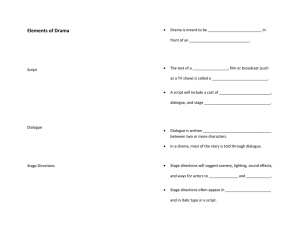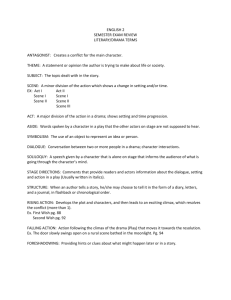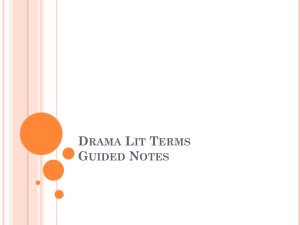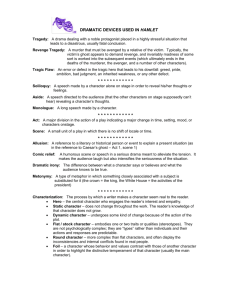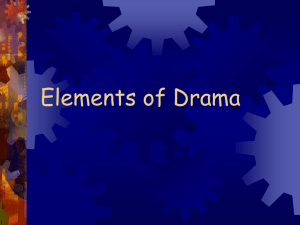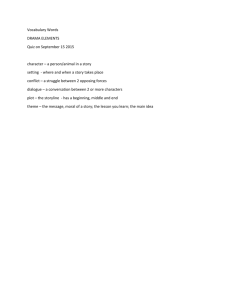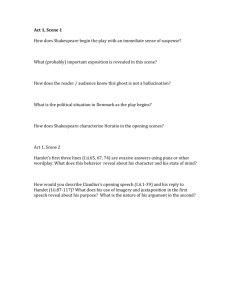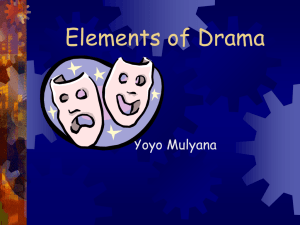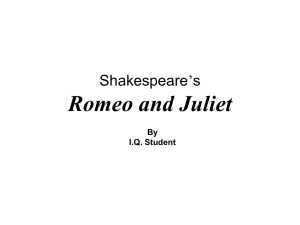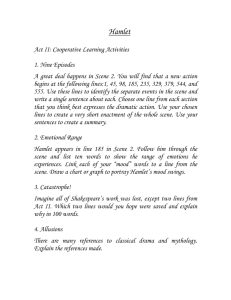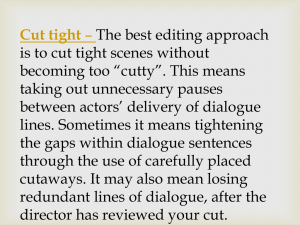Elements of Drama
advertisement
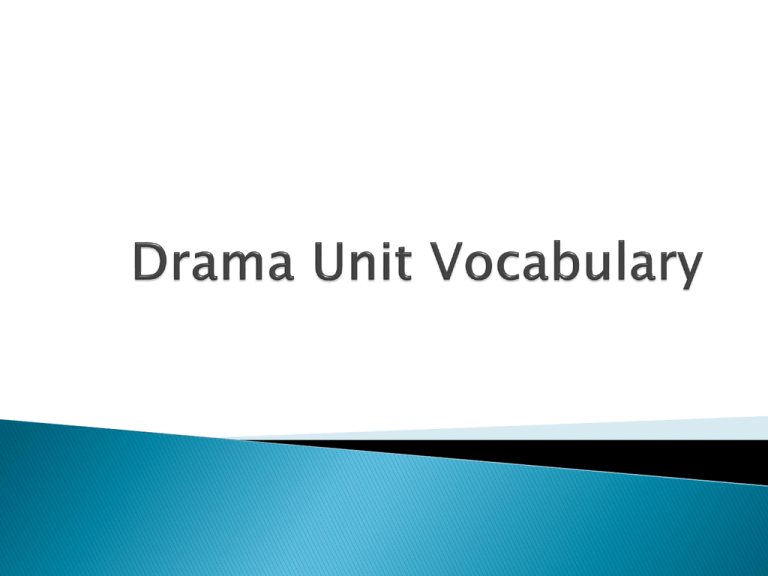
Drama is a type of literature usually written to be performed. The form drama takes is called a play or script. Sir Ian McKellen portrays Shakespeare’s character Hamlet in 1971’s production of Hamlet. Characteristics of Drama Types of Drama Purposes of Drama Written to be presented by actors. Written primarily in dialogue or lines ◦ Writers only focus on what is seen or heard on stage or screen. Non spoken material is called stage directions. Has an unique organization. Other dramatic devices. Actors are people who pretend to be the characters in a play. They must learn how to read their lines to make the story come alive during the performance. Good actors are often popular and are asked to play demanding roles. Dialogue is what a character says during the play. Dialogue always begins by listing the character’s name, followed by what he or she says. Example: Antony: O mighty Caesar! Dost thou lie so low? Dialogue is the only way information is given to the audience during a play. Stage directions are special notes in the play that give information to the actors. ◦ ◦ ◦ ◦ What to do on stage When to enter and exit during a scene How to deliver a line of dialogue What the setting looks like Give clues to what characters are feeling or thinking. Examples: SAMPSON: Draw, if you be men. Gregory, remember thy swashing blow. (They fight) (Enter BENVOLIO) JOAN (fearfully): So who saw me there…at the site of the murder? Divided into Acts and Scenes. ◦ An act is a major division. ◦ A scene is a smaller division within an Act. A play usually has 2-3 Acts with 2-3 scenes in each act. Scene changes usually mean a change in setting (time or place). SCENE I. Verona. A public place. SCENE III. A room in Capulet's house. Monologue: long speech, delivered by one character, intended for the other characters to hear Soliloquy: long speech, delivered by one character, alone on stage, not intended for the other characters to hear Aside: a character turns to the audience to say something other characters are not supposed to hear (short speech, a few lines only). There are two basic types of Drama ◦ Tragedy ◦ Comedy Other types ◦ Histories ◦ Tragicomedies Tragedy has a serious tone. Important people are usually the main characters. Involves big, important themes. Usually an important character dies at the end. Melodrama is a type of tragedy that is more focused on physical actions. Scene from “Million Dollar Baby” Scene from “Dumb and Dumber” Comedies have a light or amusing tone. Characters are usually common everyday people. Themes are often dealing with love. Happy endings are common. In traditional comedies, lead characters marry. Farce is a type of comedy that focuses on physical humor and crude jokes. Give instruction about how to live. Entertainment. Make us aware of social issues. Cause us to reflect on ourselves and our beliefs. FOIL – characters whose words and actions emphasize the differences between them Ex: Romeo and Benvolio; Romeo and Mercutio BLANK VERSE – verse with no rhyme - iambic pentameter (5 feet) (u/ u/ u/ u/ u/) But soft! What light through yonder window breaks? PUN (play upon words) – using a word with multiple meanings or two words that sound alike but have different meanings He won the twister contest hands-down. After periodic doubts about his vocational calling, the young chemistry teacher concluded he was out of his element. Dying Mercutio using the word grave: “Ask for me tomorrow, and you shall find me a grave man.” COMIC RELIEF – the introduction of a humorous character or situation into a tragic scene APOSTROPHE – the speaker addresses someone absent, dead, or an inanimate object
